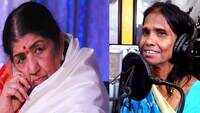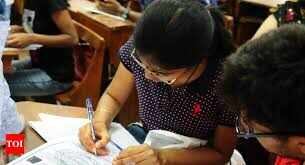
New Delhi: India's preparedness in tackling health emergencies during cyclone Fani - that hit Odisha in May - was applauded by the international community during the ongoing WHO Southeast Asia regional meet in New Delhi.
“Without such a system of early warning and evacuation, the loss of life and damage to infrastructure could have been devastating. All this is an outcome of emergency preparedness, community capacity-building and more than 20 years of investment in risk management,” the UN agency said in a Regional Committee document tabled during a ministerial roundtable on Tuesday.
Around 64 deaths were reported while nearly 2.4 million people were evacuated well in time from the affected coastal areas of India and Bangladesh after the cyclone originating from north Indian ocean had hit the costal state of Odisha and southern coastal areas of Bangladesh, the document noted.
The week-long meeting is attended by around 160 delegates including health ministers and experts from 11 member countries of WHO SEAR to deliberate on priority public health issues and further build on the momentum of disease eliminations and progress achieved in recent years. The ministers also signed the Delhi Declaration on emergency preparedness.
While presiding over the roundtable, India’s health minister Harsh Vardhan said accurate weather prediction, effective early warnings, sturdy preparedness for timely evacuation of nearly 1.15 million people to 6575 cyclone shelters, combined with other risk mitigation measures helped save many human lives during cyclone Fani.
“Special surveillance was mounted for early detection and control or containment of vector-borne and water-borne diseases. There has been no outbreak of epidemic-prone disease following cyclone Fani,” Vardhan said.
About managing rumours during public health emergencies, Vardhan said, “It is important to share authentic information with the people, as we are the custodians of their faith and as public service providers, need to keep them informed about our support.”
A resolution tabled during the meet also said India is developing a national action plan for health security which will further strengthen risk and disaster management
The UN agency also acknowledged India’s recent initiatives in improving the healthcare scenario.
“India is a leader in global health. Prime Minister Modi speaks for many in the region when he talks of the need to “strengthen the hands of the poor in pursuit of good health,” WHO South East Asia Regional Director Poonam Khetrapal Singh said.
WHO said adequate political and financial commitment for risk-informed development planning are yet to be garnered and it is in these areas that further innovation and action is required for comprehensive preparedness capabilities to be installed.
“Our role as governors of health in this region also requires that we look beyond our day-to-day concerns and the immediate horizon. To identify emerging challenges and trends. To seek new opportunities to take forward our joint agenda,” Khetrapal Singh said.
Vardhan also committed a contribution of USD 2,00,000 for the region's heath emergency fund for rapid response towards both natural disasters and human-generated hazards. He made the announcement at a ministerial roundtable on 'Emergency Preparedness' .
In the morning, Vardhan cycled to the venue of the meet to focus on strengthening promotive and preventive health so that people adopt healthy lifestyle.
“Without such a system of early warning and evacuation, the loss of life and damage to infrastructure could have been devastating. All this is an outcome of emergency preparedness, community capacity-building and more than 20 years of investment in risk management,” the UN agency said in a Regional Committee document tabled during a ministerial roundtable on Tuesday.
Around 64 deaths were reported while nearly 2.4 million people were evacuated well in time from the affected coastal areas of India and Bangladesh after the cyclone originating from north Indian ocean had hit the costal state of Odisha and southern coastal areas of Bangladesh, the document noted.
The week-long meeting is attended by around 160 delegates including health ministers and experts from 11 member countries of WHO SEAR to deliberate on priority public health issues and further build on the momentum of disease eliminations and progress achieved in recent years. The ministers also signed the Delhi Declaration on emergency preparedness.
While presiding over the roundtable, India’s health minister Harsh Vardhan said accurate weather prediction, effective early warnings, sturdy preparedness for timely evacuation of nearly 1.15 million people to 6575 cyclone shelters, combined with other risk mitigation measures helped save many human lives during cyclone Fani.
“Special surveillance was mounted for early detection and control or containment of vector-borne and water-borne diseases. There has been no outbreak of epidemic-prone disease following cyclone Fani,” Vardhan said.
About managing rumours during public health emergencies, Vardhan said, “It is important to share authentic information with the people, as we are the custodians of their faith and as public service providers, need to keep them informed about our support.”
A resolution tabled during the meet also said India is developing a national action plan for health security which will further strengthen risk and disaster management
The UN agency also acknowledged India’s recent initiatives in improving the healthcare scenario.
“India is a leader in global health. Prime Minister Modi speaks for many in the region when he talks of the need to “strengthen the hands of the poor in pursuit of good health,” WHO South East Asia Regional Director Poonam Khetrapal Singh said.
WHO said adequate political and financial commitment for risk-informed development planning are yet to be garnered and it is in these areas that further innovation and action is required for comprehensive preparedness capabilities to be installed.
“Our role as governors of health in this region also requires that we look beyond our day-to-day concerns and the immediate horizon. To identify emerging challenges and trends. To seek new opportunities to take forward our joint agenda,” Khetrapal Singh said.
Vardhan also committed a contribution of USD 2,00,000 for the region's heath emergency fund for rapid response towards both natural disasters and human-generated hazards. He made the announcement at a ministerial roundtable on 'Emergency Preparedness' .
In the morning, Vardhan cycled to the venue of the meet to focus on strengthening promotive and preventive health so that people adopt healthy lifestyle.
more from times of india news
Quick Links
Article 370RTI BillPodcast newsYamuna FloodG7 SummitMaharashtra election 2019West Bengal ElectionTamil Nadu election 2019UP Election 2019Bihar election 2019UP Election DateAndhra Election DateBihar Election DateAndhra Assembly ElectionLok SabhaMP Election DateMaharashtra Election DateShiv SenaYSRCPTDPWB Election DateJDUCongressBJP newsGujarat Election DateSC ST ActUIDAIIndian ArmyISRO newsSupreme CourtRajasthan Election DateTelangana Election DateTamilrockers 2018Uttarakhand newsSikkim newsOrrisa newsKarnataka Election DateNagaland newsSatta KingManipur newsMeghalaya news
Get the app









